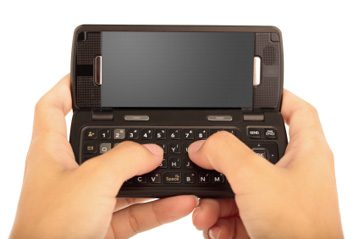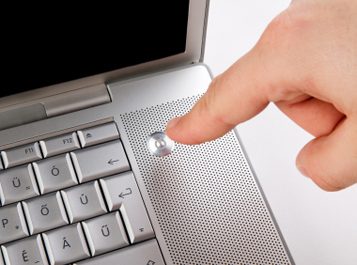
We all know someone who needs a digital diet.?
Technology has overwhelmed our daily lives to the point of constant distraction. Many of us can no longer focus on a single task or face-to-face conversation without wanting to reach out-or retreat-to the virtual world every few minutes.? ?Science and technology reporter and recovering digital addict Daniel Sieberg has devised a foolproof plan to help you regain control, focus and true connection in your life.

1. Avoid tech turds.
Don’t just dump your smart phone on the table at a restaurant or at home. Keep it in your pocket or purse unless it’s critical to have it out. If you must have it out, acknowledge its presence and inform your companions that you’ll check it only in an emergency. It’s a courtesy that you’d appreciate, too.

2. Live your life in the real world.
If you must post a status update or tweet or blog about something in your life, then make sure it’s something you’d be willing to announce to anyone you know face-to-face.

3. Ask yourself whether you really need that gadget.
There are tons of cool stuff in the tech world, and some of it might even improve your or your family’s life, but don’t feel compelled to buy every new toy that comes out. Before you make a digital purchase, question its necessity.

4. Seek tech support.
Navigating the wilds of the wired world can sometimes be too much to handle alone. It’s okay to ask for help, and it’s also okay to use technology to help “outsource self-control” when needed. Check out the many programs that can assist with budgeting your time online.

5. Detox regularly.
Once you’ve completed the Digital Diet, return to the detox phase one day a month. You can do this as a family, too. Use that day as a touchstone to remember what life can be like without technology.

6. Sleep device-free.
Move your chargers out of the bedroom to another room in the house, and let your devices live there overnight. They need a break from you, too.

7. It’s either the human or the device.
Work toward choosing people over the device. Yes, there’ll be times when it’s tricky or nearly impossible to choose between your smart phone or laptop and paying attention to your child or your loved one or your friend, but try to use your devices more on your own time rather than during the time you share with others.

8. Remember the “if/then” principle.
Choices that you make in the virtual world can have an impact in the real one. For example, if you don’t find the time to put down the gadgets and log out once in a while, then you might lose the ability to appreciate the finer moments in life.

9. Structure your e-day.
Work toward a finite beginning and end to your connectedness. In other words, dive into the gadgets and the email and the texts only when you’ve composed yourself in the morning. When you’re ready to unplug in the evening, do it without reservation and focus on what- and who- is immediately around you.

10. Trust your instincts.
If you think you might be spending too much time being a voyeur on social networks or playing online games or endlessly texting, then you probably are. That little voice knows when it’s all become too much. Listen to it. Pursue the ultimate goal of balance and awareness.
Excerpted from The Digital Diet by Daniel Sieberg Copyright © 2011 by Daniel Sieberg. Excerpted by permission of Three Rivers Press, a division of Random House of Canada Limited. All rights reserved. No part of this excerpt may be reproduced or reprinted without permission in writing from the publisher.
Related:
• How technology can ruin your family’s sleep
• Information overload
• 8 tips to stop tech stress
